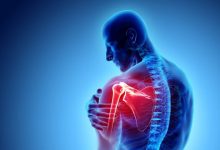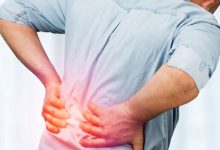Vitamin D And COVID-19: An Update
It should be a real miracle cure. It is said to strengthen the bones and the immune system and protect against Alzheimer’s and cancer. And possibly save from getting more seriously ill with Covid-19. But what is the hype about vitamin D? Which is actually not a vitamin, but a hormone. Do dietary supplement manufacturers’ promises stand up to scientific scrutiny?
Should everyone actually take vitamin D supplements to better survive a possible corona infection? To find out, Hans Konrad Biesalski from the University of Hohenheim near Stuttgart analyzed 30 studies that looked into the question: How does vitamin D affect the risk of developing Covid-19?
Table of Content
vitamin D and corona is being discussed
The emeritus professor of nutritional medicine draws the following conclusion from his critical examination: The work certainly provides indications that an inadequate vitamin D supply can more often be associated with severe corona courses. “But that does not mean that a vitamin D deficiency is the cause of a severe course,” emphasizes the scientist.
Not a single meaningful study has so far been able to unequivocally demonstrate a causal relationship. Rather, it seems to be the case that many Covid 19 patients suffer from comorbidities, which are often associated with a vitamin D deficiency. These include obesity and type 2 diabetes. Smaller studies by the universities of Anger (France) and Córdoba (Spain) also suggest that people infected with corona benefit from vitamin D administration.
Due to the small number of participants, however, these studies are not conclusive enough. At the moment, it is simply not possible to say whether vitamin D actually protects against a severe course of Covid-19. When it comes to protection against other diseases, science also curbs overly exaggerated expectations.
Vitamin D, for example, does not play a role as a means of preventing cancer and cardiovascular diseases. This suggests the so-called Vital Study with almost 26,000 participants with an average age of 67 years. After a period of a little more than five years, it became clear that the participants who received dietary supplements fell ill with these diseases no less often than the test subjects in the comparison group.
Vitamin D levels drop in winter
Vitamin D controls important metabolic processes in the human body. The latter can produce the chemical compound itself. To do this, it only has to absorb UVB radiation from sunlight through the skin, which is quite possible in our latitudes between March and October.
“That is why it is important to go outside a lot. At least three times a week for 20 minutes,” advises Professor Helmut Schatz (retired) from the German Society for Endocrinology. According to the Federal Office for Radiation Protection, it is completely sufficient to leave your face, hands, and arms uncovered.
The body gets only ten to 15 percent of its vitamin D requirement from certain foods. Contrary to what is often claimed, avocados are not one of them. Instead, eggs, sun-dried mushrooms, and fatty sea fish. However, this is often contaminated with pollutants.
Because the days in the winter half-year in Central Europe are short and the intensity of UVB radiation is very low, the organism hardly produces any vitamin D during this time. The level in the blood usually drops.
From which blood values does a vitamin D deficiency exist?
- Poor supply: Less than 30 nanomoles per liter (nmol / l). Possible consequences: for example, softening of the bones (rickets) and depression
- Suboptimal : 30 to 50 nmol / l. Possible consequences: disorders of the bone, muscle, and immune function
- Sufficient: more than 50 nmol / l. No deficiency-related disruption of body and immune functions is to be expected
- Oversupply: from about 125 nmol / l. Possible consequences: cardiovascular disorders and kidney damage
Nevertheless, not all Central Europeans, therefore, need food supplements. Anyone who takes appropriate preparations on their own and has no proven deficiency should not exceed a daily dose of between 800 and 1000 international units (IU). According to the expert Helmut Schatz, older people aged 65 and over can take 1000 to 2000 IU daily as a preventive measure. They no longer produce as much vitamin D through the skin.
Young people can also suffer from vitamin D deficiency
Even younger people, who mostly sit in the office and only get little daylight in winter, can take 800 to 1000 IU as a preventive measure without harming them. Nutritionist Biesalski adds: “I still suggest having the vitamin D level determined. It may be very low. Then 1000 will not be enough at the beginning.” The health insurance does not pay for the test. It costs around 20 euros.








